Harry Belafonte (March 1, 1927 – April 25, 2023) – Pastures Of Plenty (1964)
One of the sadly departed singer's most powerful message songs was this Woody Guthrie cover from his Ballads, Blues and Boasters LP.
Watch full video on YouTube.
Harry Belafonte was a towering figure of the twentieth century who used his celebrity to speak out for civil rights and social justice. After becoming a successful recording artist and actor in the 1950s, he helped fund the Civil Rights Movement.
Born in Harlem to Jamaican-American parents, as a child he lived with one of his grandmothers in Jamaica. He returned to New York City to attend high school and then served in the Navy during World War Two. After the war, when he was working as a janitor’s assistant to actress Clarice Taylor (best known for her role as Cousin Emma on Sanford and Son), he was given two tickets to the American Negro Theater in Harlem. It was the first play he had ever seen, and he fell in love with theater, later describing the experience as “magical.”
He and a young Sidney Poitier became friends during this time and attended plays together, often splitting a single ticket and trading places between acts since they were unable to afford two seats. At the end of the decade, Belafonte and Poitier enrolled in acting classes at the Dramatic Workshop of The New School with other students destined to be stars including Marlon Brando, Tony Curtis, Bea Arthur and Walter Matthau.
Belafonte began his singing career to pay for his acting classes. At his first gig, he was backed by Charlie Parker and his band, which also included Miles Davis on trumpet and Max Roach on drums. He sang at jazz clubs for the next several years while acting in New York and developed an interest in folk music in the early 1950s.
In 1953 he signed a contract with RCA Victor Records, and released his first single, “Matilda,” which was recorded almost exactly seventy years ago, on April 27, 1953. Later it was re-recorded in a more folk song-sounding version and included on his self-titled second studio album, released in late 1955.
That album became the first LP to top Billboard’s new Top Pop Albums chart (which would eventually become the Billboard 200), spending six weeks at #1 before it was dethroned by Elvis Presley’s debut LP.
Belafonte’s next album was the breakthrough Calypso (1956), which popularized the style of calypso music in the U.S. and became the first LP in history to sell over one million copies.
Belafonte was an early and vocal supporter of the Civil Rights Movement in the 1950s and 60s. He became close friends with Marin Luther King Jr. and his family, and provided them with financial support to supplement King’s meager $8,000 annual salary as a minister.
Using his newfound fame as an actor and chart-topping recording artist to speak out in support of civil rights got him blacklisted during the McCarthy Era. Belafonte refused to perform in the segregated South from 1954-1961.
He bankrolled the Movement with royalties from his record sales and acting career, and helped organize the March on Washington. During the Birmingham Campaign in 1963, he bailed Dr. King out of jail and raised $50,000 to bail out other civil rights activists. He gave $60,000 in cash to the Student Non-Violent Coordinating Committee (SNCC) to help fund Mississippi Freedom Summer in 1964.
In 1960, he released the single “Oh Freedom,” which became one of the Civil Rights Movement’s celebrated freedom songs. Four years later, in 1964, his album Ballads, Blues and Boasters featured several socially conscious movement songs, including the equality anthem “Back Of The Bus,” and a powerful cover of Woody Guthrie’s “Pastures Of Plenty,” about the struggles of migrant farmworkers.
Another of his overlooked freedom songs was “Black And White (Together)” (1971), from his fifth and final calypso album, Calypso Carnival. It was written by Ralph MacDonald, who arranged and conducted the album. MacDonald would later co-write the Donny Hathaway-Roberta Flack duet “Where Is The Love” (1972), and two huge hits for Grover Washington Jr., “Mister Magic” (1975) and “Just the Two of Us” (1981), which featured Bill Withers on vocals.
At a 1980 concert at the Circus Krone in Munich, Germany that was taped for German television, broadcast as Ich Singe Was Ich Sehe (I Sing What I See), and considered by many to have been one of his best concerts ever, Belafonte opened the night with a memorable performance of “Pastures Of Plenty.”
Rest in Power to the great Harry Belafonte.
#soul #HarryBelafonte



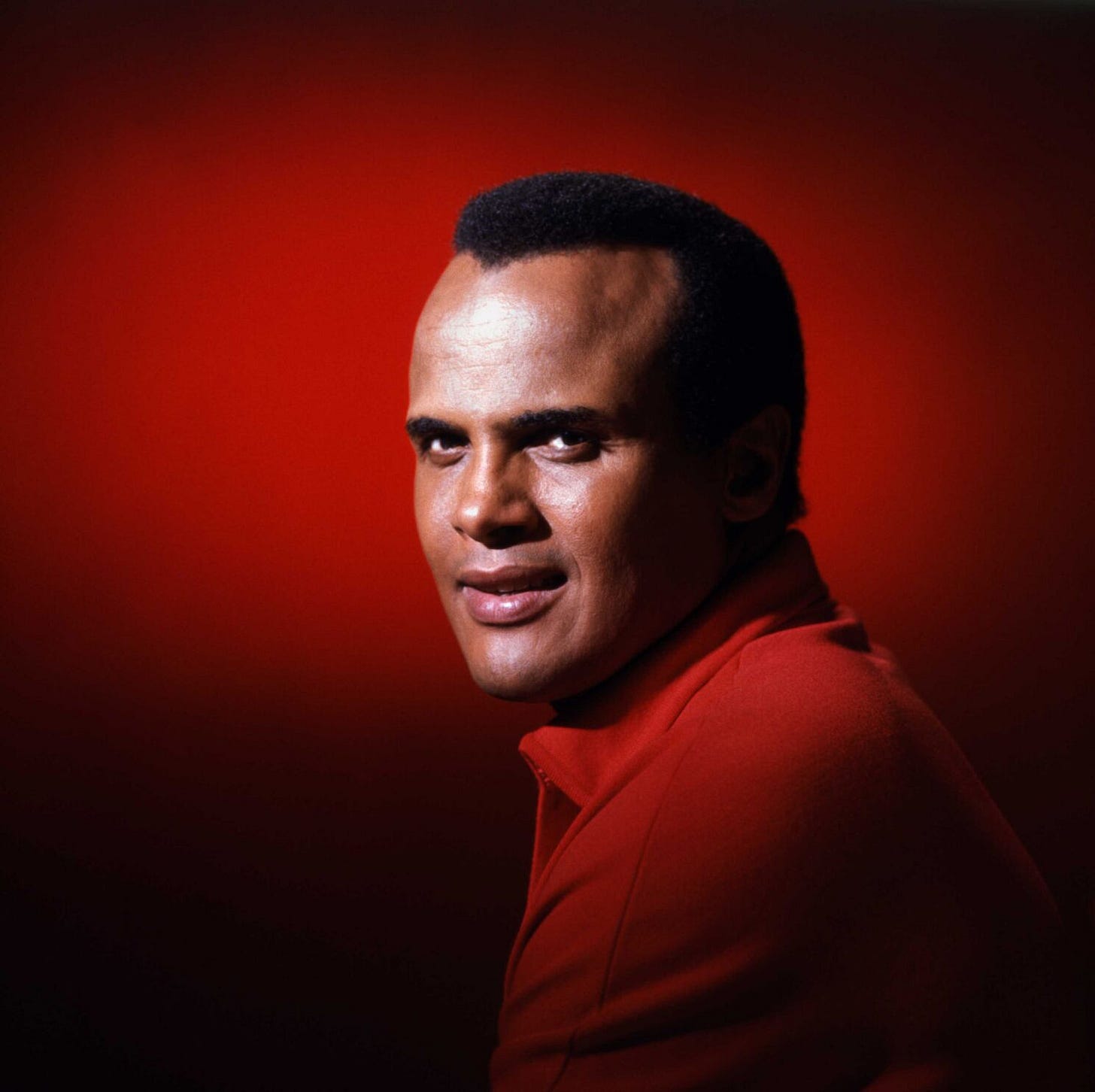
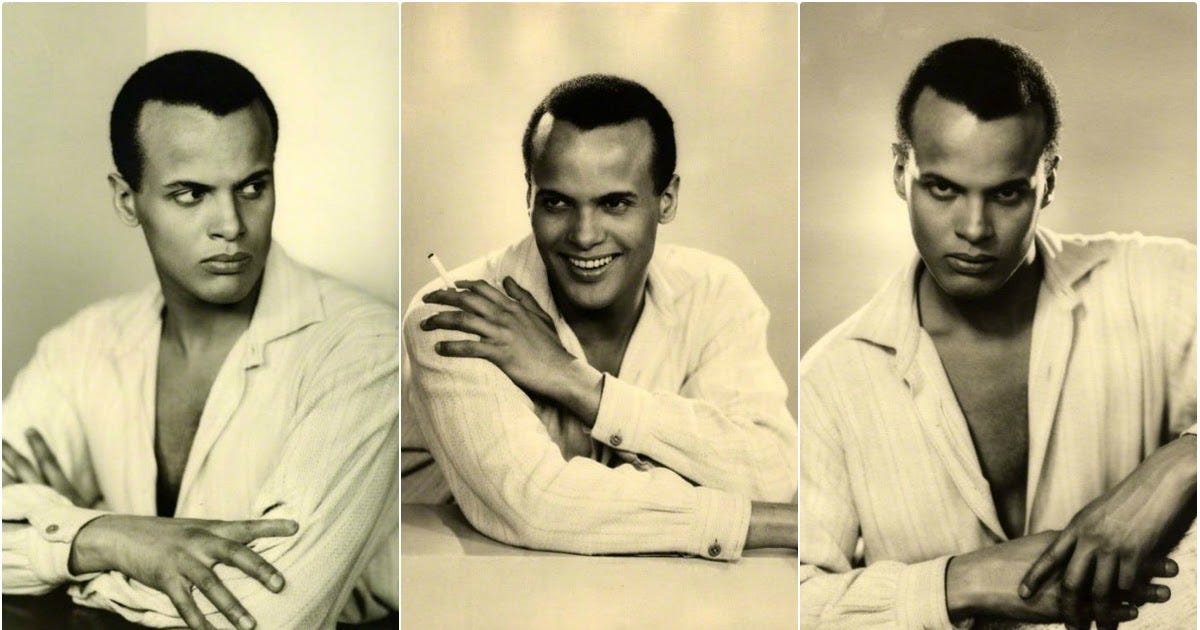
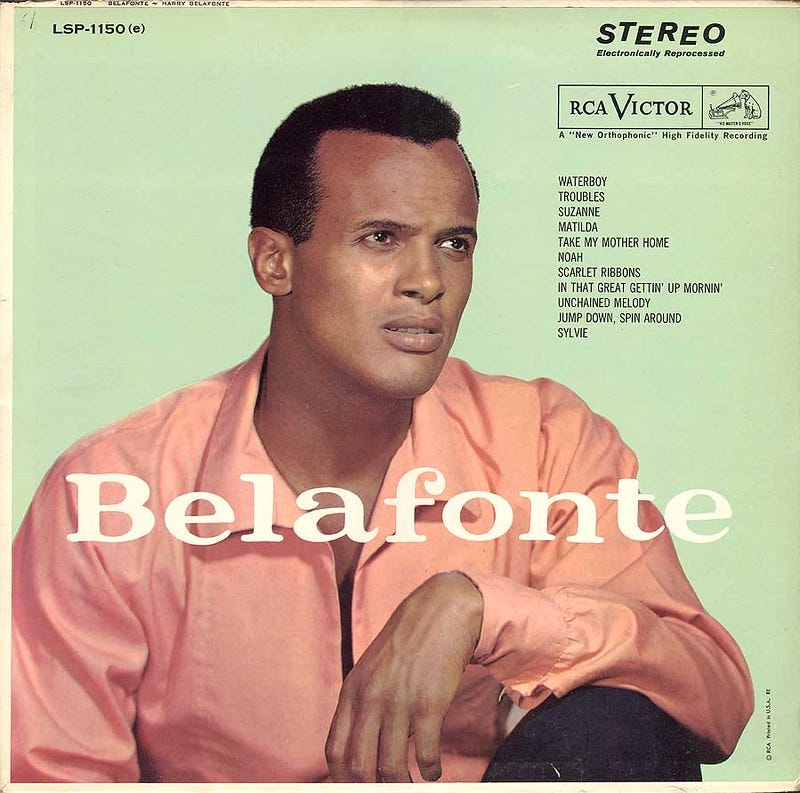
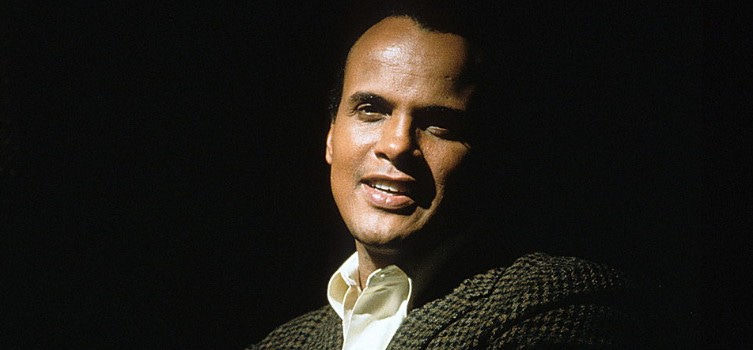
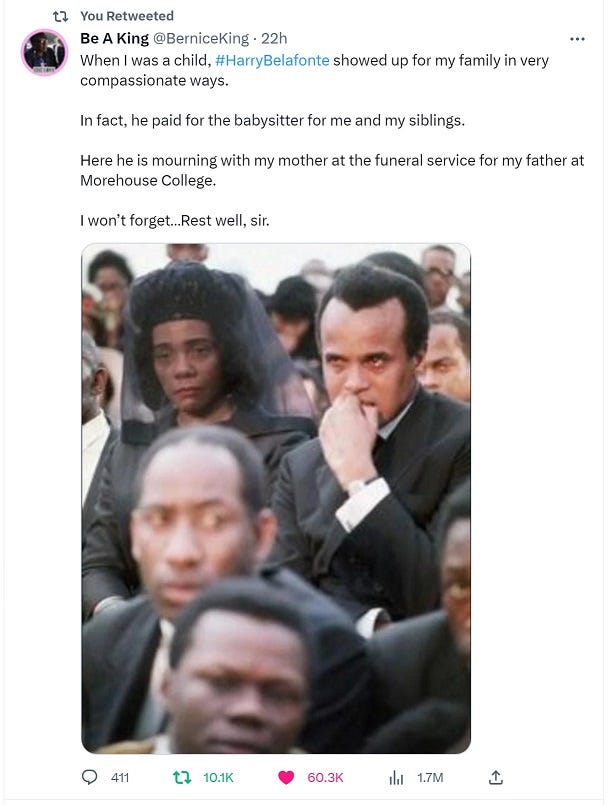


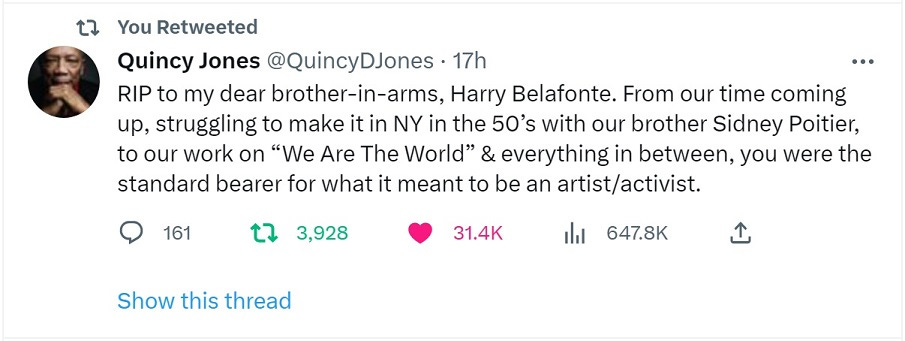
Rest In Peace Mr. Belafonte. 🙏